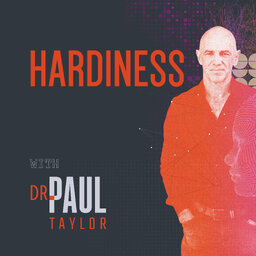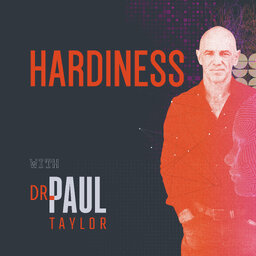The Science and Philosophy of Antifragility with Paul Watkins
In this episode, we explore the world of extreme expeditions and mental resilience with Paul Watkins, an adventurer who has conquered challenges across seven continents. From Antarctica's icy expanses to towering mountain peaks, Paul shares gripping tales that showcase not just physical endurance, but also mental fortitude, self-discovery, and the power of human connection in adversity. He explores how gallows humour becomes a lifeline in dire situations and why confronting your limitations can be transformative.
Paul unveils practical techniques for building mental resilience, including the intriguing 'future self' concept and its impact on decision-making. He challenges conventional wisdom about resilience, advocating for an 'anti-fragile' approach that thrives on stress rather than just withstanding it. These insights aren't just for extreme adventurers - they're valuable for parents fostering independence in children, professionals facing tough decisions, or anyone looking to build confidence in challenging situations.
This conversation is packed with actionable takeaways, from tips on positive self-talk to a thought-provoking two-step model for decision-making. You'll learn why 'pre-paying hurt' through training is invaluable, how to harness your 'future self' for motivation, and why being merely resilient isn't enough in today's world. Whether you're scaling mountains or navigating everyday challenges, this episode offers invaluable lessons on not just surviving, but truly thriving in the face of adversity.
Key Topics:
-
Expedition Experiences: Trail running, climbing, and expeditions across seven continents, with a particular focus on Antarctic conditions and challenges.
-
Mental Resilience: Exploring the mental vs. physical challenges in extreme situations, including the role of gallows humour as a coping strategy during difficult expeditions.
-
Trust and Human Connection: How shared extreme experiences create lasting bonds and trust between expedition partners.
-
Self-Discovery Through Discomfort: Why pushing personal limits and "staring into the abyss" help us learn about ourselves in extreme situations.
-
Mindset and Self-Talk: Practical techniques for mental resilience, including the importance of positive self-talk ("I'm awesome") and framing challenges through the lens of personal values rather than as chores.
-
Future Self Concept: The psychological concept of "future self" and how thinking about your future self can influence current decision-making and motivation.
-
Antifragility: How to build resilience through intentional exposure to challenges, including the importance of allowing children to experience and overcome difficulties rather than overprotecting them.
Key Takeaways:
-
When doing extreme challenges, be conscious of what you're doing all the time.
-
Always have the mindset and the framework to keep going until you reach your goal.
-
Have a conversation with yourself and ask, “How important is it to you to win?”
-
Discipline is an act of self-love.
-
Two-step model for deciding whether to do something: think about it for 30 days and at the end of 30 days, reflect how much you thought about it; then ask yourself, if you could do it, and no one would ever know, and you can never tell anyone, do you still want to do it?
-
Look at training as a pre-payment of hurt for future events.
-
Do something today that your future you will thank you for.
-
Being resilient is not enough; we should adapt to stress and thrive in hard environments.
Connect with Guest:
Website: https://www.paulwatkins.com.au/
LinkedIn: https://www.linkedin.com/in/paul-watkins-92125499/
Instagram: https://www.instagram.com/the.rogue.scholar/?hl=en
YouTube: https://www.youtube.com/@paulwatkinsroguescholar
Support the Podcast:
If you found this episode valuable, please consider subscribing, rating, and leaving a review on your preferred podcast platform. Your support helps us reach more people with important conversations like this one.
Share this episode with someone who might benefit from hearing it—emotional eating is more common than we think, and this conversation could make a difference in someone's life.
In 1 playlist(s)
Hardiness with Dr Paul Taylor
Host Dr Paul Taylor, a Psychophysiologist, Neuroscientist, Exercise Scientist, and Nutritionist inte…Social links
Follow podcast
Recent clips

Discovering Your Ikigai with the Japanese Rock-star Neuroscientist, Ken Mogi
55:28

The Skin–Brain Connection: How Sunlight Influences Serotonin, Mood and Psychiatric Disorders - Wisdom wednesdays
11:01

What Regret Can Teach You With Carly Taylor
04:57
 Hardiness with Dr Paul Taylor
Hardiness with Dr Paul Taylor